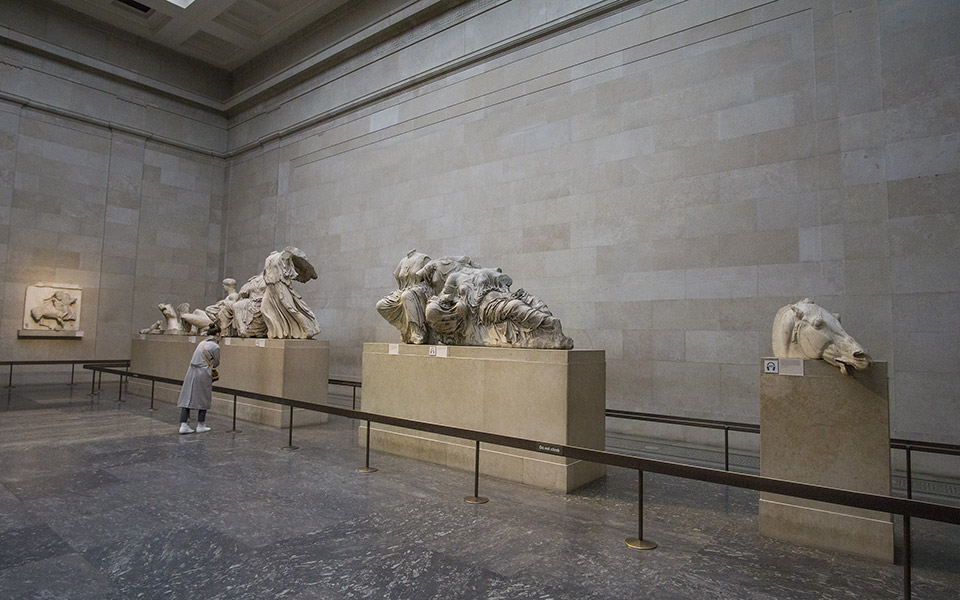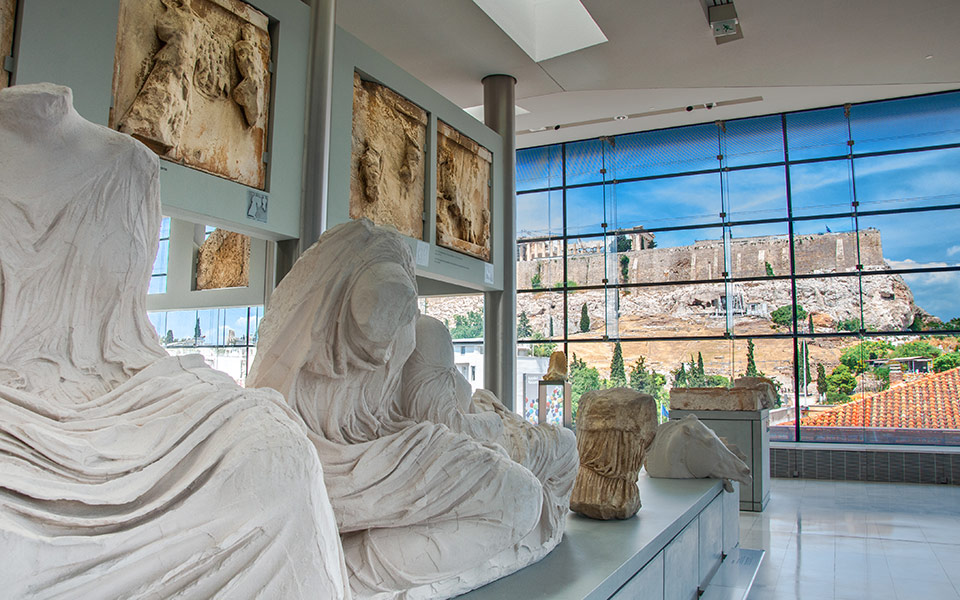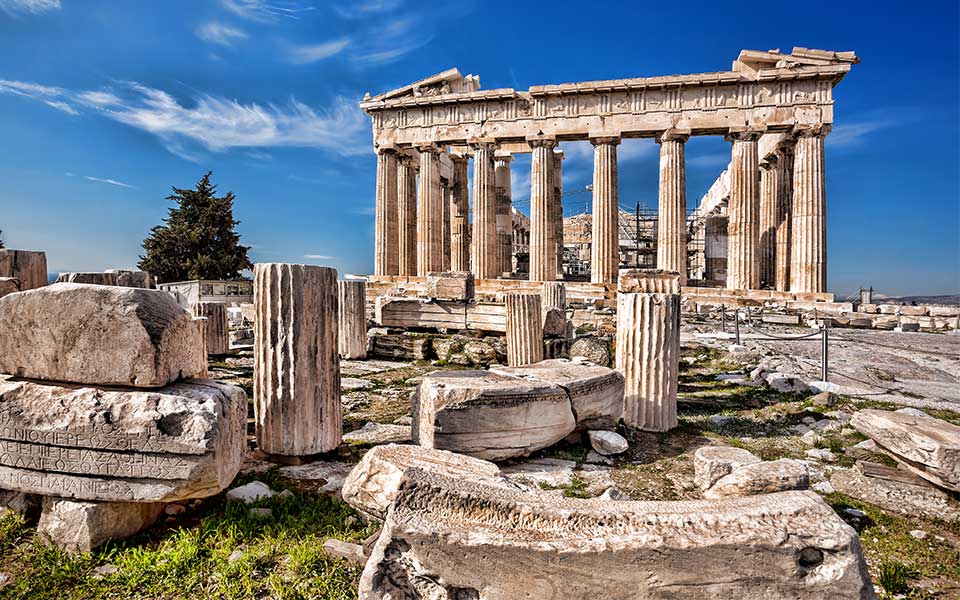The effects of Covid-19 on the European Union will be felt, discussed and studied for years to come. But this much is clear already. The pandemic has underscored the need for its member-states, as well as for all countries across the globe, to act together to manage the cross-border challenges that will affect the health and well-being of their people. Challenges such as those presented by the pandemic, climate change, human migration, and more, cannot be addressed successfully if they and other nations act alone.
It was with this truth in mind that I read with interest the Telegraph’s account of Boris Johnson’s interview with Ta Nea earlier this year, in which he reportedly made the claim the “Elgin Marbles” were “lawfully acquired” and “owned by the British Museum’s Trustees since their acquisition.” The British prime minister is said to have based his authority to make such a determination on his alleged status as a “keen scholar of Greek history.”
Perhaps he is. But if so, I would ask if he has read “The British Museum, Elgin and Phigaleian Marbles” (Vol. 1), written by the noted English librarian and antiquarian Sir Henry Ellis and published by the Society for the Diffusion of Useful Knowledge in 1833. Sir Henry, quite a keen scholar himself, cast significant doubt on the legality of the purchase of the Marbles. And, unlike Mr Johnson, his report of the debates relied on actual historical evidence in doing so.

© Shutterstock
Sir Henry was the secretary to the British Museum and of the Society of Antiquaries of London during the parliamentary debates in 1816, when the acquisition of the Marbles from Lord Elgin by the British government was debated. His account of the debates reflects the well-known claim that Elgin allegedly had obtained a “firman” from “the Porte,” the synecdoche of the Ottoman Empire, granting him permission to remove the Marbles. Sir Henry also makes clear Parliament was made aware that when the firman was presented to the Sultan’s representative in Athens, the Vaivode, it was accompanied by “presents of value.”
Sir Henry tells us that those opposing purchase of the Marbles asserted during the debates that, under the above circumstances, Elgin’s method of obtaining them had been “dishonest and flagitious.” We don’t use “flagitious” much anymore, but it means criminal and villainous. It derives from the Latin noun flagitium, meaning “shameful thing.” Some British politicians might be more familiar with the Latin noun flagrum, meaning “whip.”

© Shutterstock
In the end, it’s clear from Sir Henry’s book that Parliament didn’t much care if Elgin’s conduct was “dishonest and flagitious.” In approving the purchase, they asserted he’d been right to remove the Marbles because they were “lying in their own country in a course of destruction; that the Turks viewed them with apathy, and they even were in the habit of shooting at them; that Lord Elgin went into Greece with no intention to commit ravages on her works of art… that in Turkey upon all introductions, whether with or without a firman, the local authorities must be propitiated with presents…”
Perhaps Parliament was right, and the Turks would have done further harm to or even destroyed the Marbles. This no one can know. But as any student of English common law or any other established legal system knows, doing something good does not mean you are doing something lawful.
I have no personal stake in the matter of the Parthenon Marbles, nor do I claim to be a scholar of Greek history, although Sir Henry’s book is in my library, and apparently not in Mr Johnson’s. I write because I believe there’s an urgent need to develop narratives that stress what nations and people have learned and borrowed from one another to enhance their ability to work cooperatively to address their shared challenges.
The story of the Marbles, recounting as they do the myths and history of the Greek people, could help provide such a narrative if it’s understood it’s the ideas they depict that matter, and that concepts of ownership don’t, and shouldn’t apply. We should have higher and more useful ambitions concerning works of such importance.

© Shutterstock
Few countries have benefited as much from the ideas the Greeks bequeathed the Western world than has England. Democracy is only one of them. Much of Western thought and the practice of informed discourse also was a gift given to the world by the Greeks. Arguments such as those presented by Mr Johnson are corrosive to this global inheritance. Matters are made worse when claims of “scholarship” are used to sheath what are, in fact, political arguments, with the gloss and shimmer of mirages conjured to disguise personal political goals.
The question isn’t, or shouldn’t be, who “owns” the Marbles, nor whether they should be returned or kept. The question should be how they could be used to promote the narratives the world now needs to find common cause. Those narratives would have a far greater chance of being accepted if they were to utilize works which depict the seminal ideas of the past, such as the Marbles, and make clear they belong to the world. Only then will we be able to create the cognitive and cultural congruence needed to bring us together to solve our shared challenges.
I offered one idea how we might use the Marbles to help create such a narrative in an article published by the Guardian on February 21, 2020, in which I called for the creation of a “21st Century Museum.” Such a museum would be a traveling home of world treasures displayed so as to reveal what cultures have in common, and also what cultures have contributed to one another. But whatever approaches are taken, we should turn our attention to using works like the Marbles to tell our shared story.
As Covid-19 already has demonstrated, and climate change and human migration will soon, we need such narratives to bring us together to find a sustainable and peaceful future. Mr Johnson’s position concerning the Marbles, based on assertions of ownership and “keen” scholarship, do the opposite.
Ambassador David L. Carden (Ret) was the first resident United States ambassador to the Association of South East Asian Nations. He studied in Greece with College Year in Athens and is a frequent visitor to the country.
This article was previously published at ekathimerini.com.












